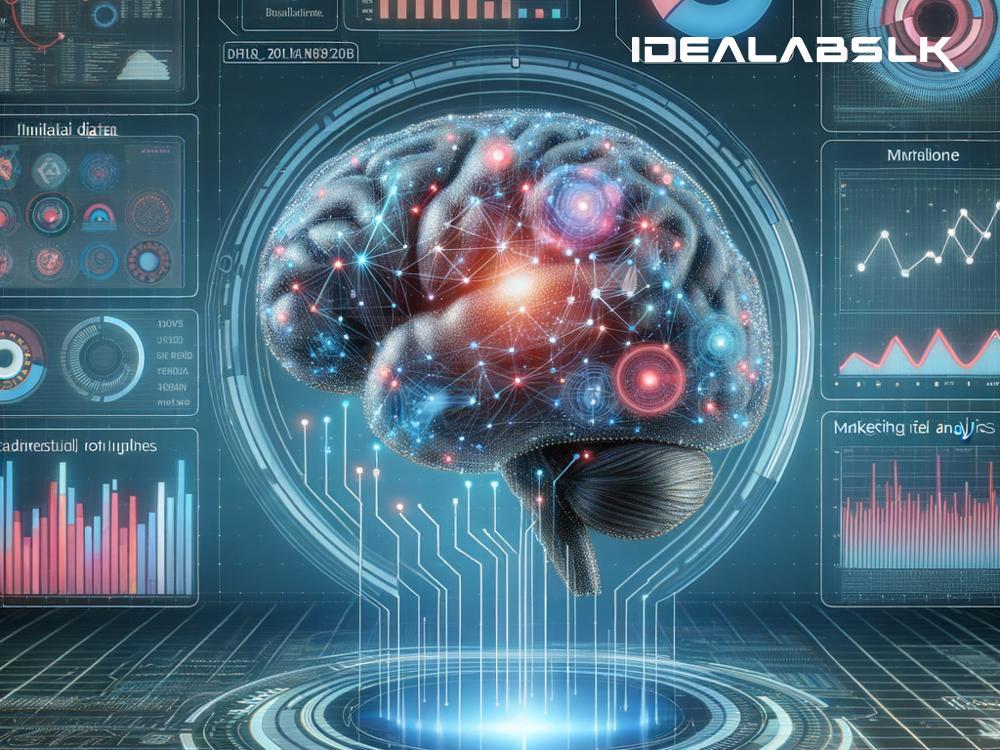In today’s world, where almost everything is digital, businesses have found a new best friend: Artificial Intelligence, or AI for short. Especially when it comes to marketing, the role of AI has become incredibly significant. So, what is data-driven marketing, and how does AI play a critical role in it? Let's break it down.
Data-Driven Marketing: A Quick Overview
Imagine you have a shop that sells delicious cookies. You want to tell people about your cookies and convince them to buy them. In the old days, you might have just yelled out of your door, hoping people walking by would notice. But what if you could know exactly who loves cookies, what flavors they love, and when they are most likely to buy them? And what if you could directly tell them about your delicious cookies? That's data-driven marketing in a nutshell. It's about knowing your customers so well, thanks to the data you've collected, that you can market your product to them in the best possible way.
Enter AI: The Game Changer
AI is like a super-smart assistant that can process loads of information – more than a human could ever comprehend – and make smart decisions based on that information. When it comes to data-driven marketing, AI is the superhero without the cape. Here’s how:
1. Understanding Customers Like Never Before
AI can analyze vast amounts of data from different sources, like social media, website interactions, and even offline behaviors. It can then identify patterns and preferences. This means businesses can understand what their customers like, when they're likely to make a purchase, and even predict future trends.
2. Personalization: Making Every Customer Feel Special
Have you ever visited a website and then suddenly started seeing ads for that website or specific products you looked at? That's AI-powered personalization at work. AI algorithms can suggest products, tailor email marketing campaigns, or even personalize website experiences for individual users. It’s like having a personal shopper for each customer, knowing their tastes and preferences.
3. Smarter Decisions with Predictive Analytics
Imagine being able to predict the future. With AI, businesses sort of can. Using what's known as predictive analytics, AI examines past and current data to make forecasts about future customer behavior. This means companies can anticipate trends, understand potential risks, and seize opportunities before their competitors do.
4. Efficient Use of Marketing Budgets
Marketing can be like a leaky bucket – if you’re not careful, you could be pouring money down the drain. AI helps plug these leaks by determining the most effective ways to spend marketing dollars. It can analyze which channels (like email, social media, or search engines) are most effective for reaching specific audiences and then allocate resources accordingly. This ensures that marketing efforts aren’t just shots in the dark but strategic moves that lead to higher returns on investment.
5. Enhancing Customer Experiences
At the end of the day, marketing is about creating connections and enhancing the relationship between businesses and their customers. AI can help by streamlining customer service through chatbots that provide immediate responses, analyzing feedback to improve products or services, and creating seamless shopping experiences, both online and offline.
The Human Touch Still Matters
It’s important to remember that while AI is incredibly powerful, it doesn’t replace the need for a human touch. AI can provide insights and automate tasks, but the creativity needed to craft compelling marketing messages, the empathy required to truly connect with customers, and the ethical considerations around data privacy – those are uniquely human traits.
Embracing the Future
The role of AI in data-driven marketing is neither a fad nor a futuristic fantasy. It’s here, and it’s transforming how businesses communicate with their customers. By leveraging AI, businesses can make smarter decisions, create highly personalized experiences, and build stronger relationships with their customers. However, the magic happens when AI’s capabilities are combined with human insight, creativity, and ethics. That’s the future of marketing – data-driven, AI-powered, but unmistakably human at its core.
As we move forward, the synergy between AI and human imagination will continue to shape the landscape of marketing. And for businesses willing to embrace this partnership, the possibilities are as limitless as they are exciting.

